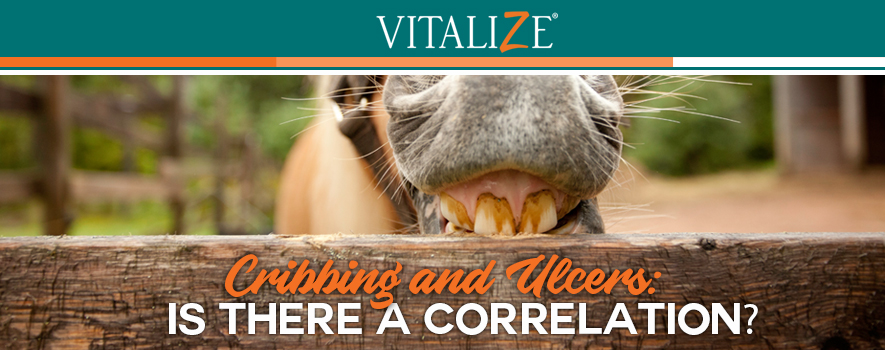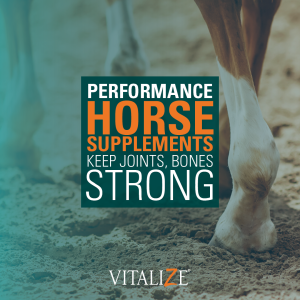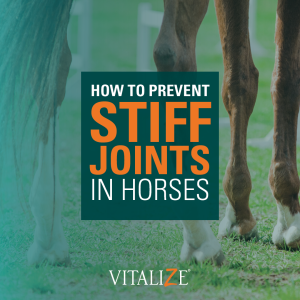“Don’t let him near my horse,” is a common response one might get if they say their horse is a cribber. Why? Because it is a common thought in the industry that the act of cribbing is a learned behavior. Is this correct? Maybe… but there could be a physiological reason behind the act that may make more sense.
What if there is a correlation between cribbing and gastric ulcers? Studies show there could be. One conducted at the University of Bristol tested 19 young horses that had begun developing cribbing tendencies alongside 16 non-cribbing horses for 14 weeks and then gathered their results. Those who were cribbers showed significantly lower – or more acidic – fecal pH levels than the non-cribbers. This means the cribbers’ stomachs were more acidic, making it more plausible for them to be suffering from gastric inflammation (Nichol et al., 2002).
Although the direct cause of gastric ulcers remains unclear to veterinarians and industry professionals, it is often thought to have something to do with the acid in the stomach. Cribbing, or the act of using objects such as a fence or bucket to suck in air, works to inflate the stomach. By expanding the stomach, the horse creates more room inside and simultaneously shifts possible lesions up and away from the acid residing inside the stomach. Smart, right?
If your horse is a cribber, ask yourself: does he or she also show signs of gastric ulcers? Some symptoms include:
- Negative behavior
- Unthrifty appearance
- Decreased appetite
- Decreased performance
- Girthiness/cinchiness or sensitivity to the flank
- General discomfort
If these signs sound familiar, consider making an adjustment to your horse’s diet to win the game against digestive upset (and maybe even cribbing)! Implementing a daily gastric health supplement such as Vitalize® Alimend®, with ingredients that have been proven in clinical trials, will help repair, maintain and soothe the stomach lining of the horse by coating it in a mucoadhesive manner.
It is also important to note that even though acid is thought to have something to do with the creation of ulcers, it is not a bad thing. In fact, acid is necessary for digestion and without it, there is a higher risk for colic or digestive upset. This is why Vitalize Alimend does not disrupt the secretion of stomach acid, and instead works withthe stomach to prevent and soothe gastric problems. With Alimend, your horse will not have an “acid rebound” like many other products create, but instead your horse will maintain a steady good gut feeling.


